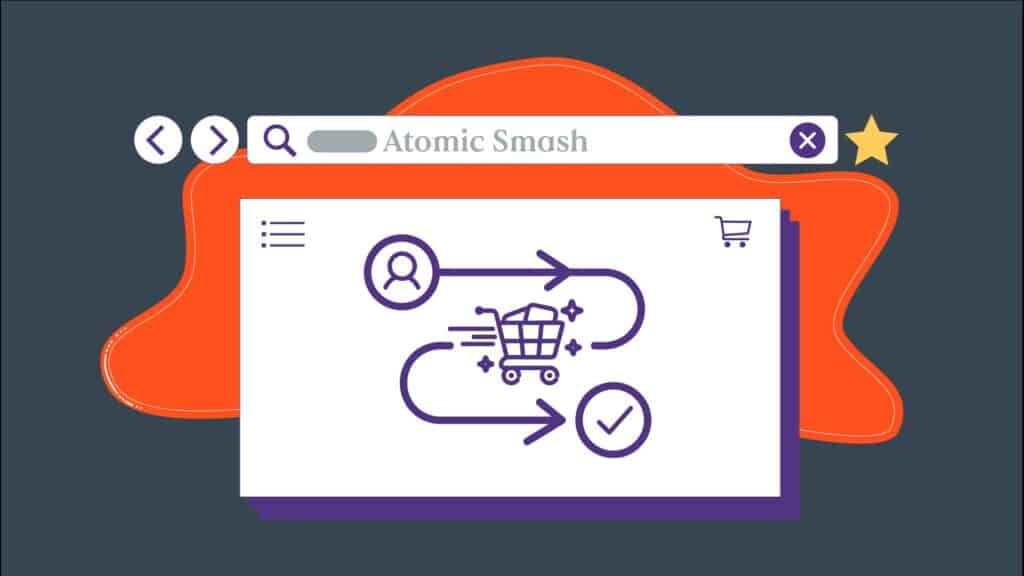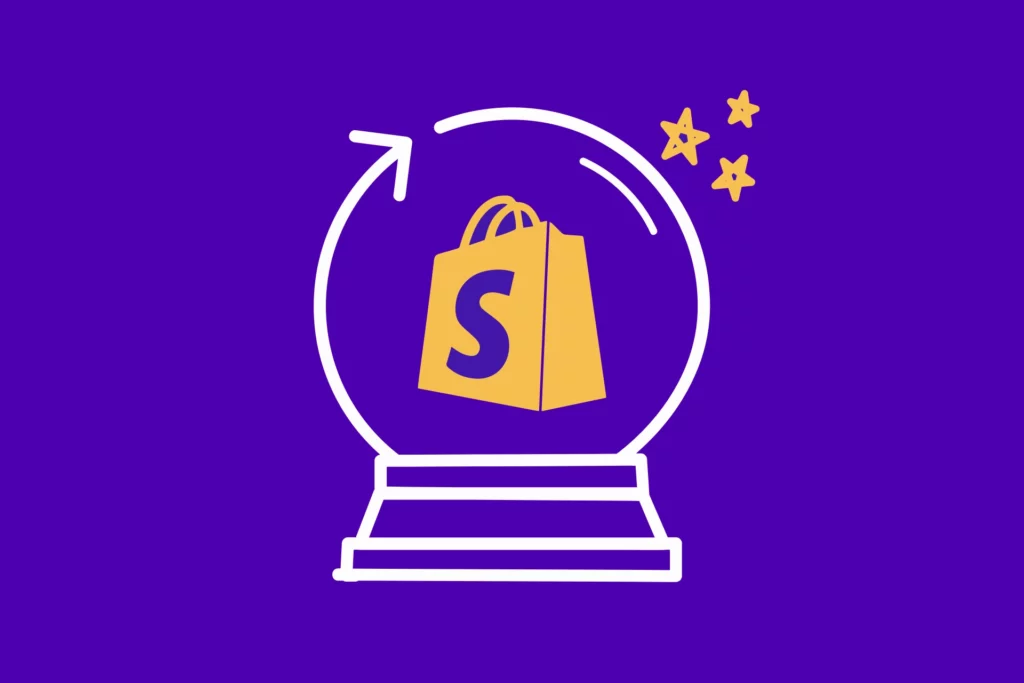Looking ahead at Shopify’s place in the future of eCommerce
Looking ahead at what’s next for Shopify and its role in eCommerce.
As merchants navigate the dynamic landscape of online retail, Shopify continues to empower businesses of all sizes to thrive. But what’s the future of Shopify? And what’s next for online shopping?
Let’s dive into it.
The future of eCommerce and the role Shopify is set to play
- Elevating user experience
Seamless and personalised shopping experiences is the future we want to see. Fortunately, Shopify’s commitment to enhancing user interfaces and streamlining processes ensures a smoother journey for both merchants and customers.
- Innovation
Technology moves fast, so we expect to see more groundbreaking features and tools emerge. Augmented reality shopping, AI-powered recommendations, and all the technological advancements we can’t yet imagine, together will redefine the way we do business online.
- Global expansion
Think global. The world is your marketplace! As businesses aim to reach new horizons, Shopify provides the tools to scale internationally effortlessly.
- Eco-friendly initiatives
Sustainability matters and Shopify is taking steps towards a greener future by prioritising eco-friendly practices.
- Security and trust
Trust is paramount for digital purchases, but rest easy knowing your online store is in safe hands. Shopify continues to invest in robust security measures to protect both merchants and consumers.

The features that will set Shopify apart, now and into the future
Shopify’s platform delivers a seamless and intuitive experience for users, from setting up an online store to managing products, processing orders, and customising the look and feel. Its user-friendliness is often considered Shopify’s single best feature.
- Interface: Designed with simplicity in mind, so even users with minimal technical knowledge can easily navigate and use the platform to build and manage their online stores.
- All-in-one solution: A comprehensive solution that covers everything from hosting to payment processing. It eliminates the need for users to juggle multiple tools and platforms.
- Customisation: Templates and themes allowing users to tailor online stores to align with brand identity.
- App ecosystem: Applications that can be integrated seamlessly with the platform. This allows users to add features and functionalities to their stores without complex coding or development.
- Secure and reliable: Security is a top priority for eCommerce. For the most part, Shopify’s platform is reliable, scalable, and equipped to handle the demands of online business.
- Scalability: Suitable for small businesses just starting out or large enterprises gearing up for substantial growth.
Audits to unlock your store’s potential
Is your online store reaching its potential? Is your business utilising the most effective tech stack to meet your needs?
Book an audit to discover which digital enhancements will move the needle for your store.
Balancing benefits and risks
While Shopify is a widely popular and reliable eCommerce platform, like any business solution, it comes with its set of potential risks.
It’s important to be aware of these challenges in relation to your business goals and requirements, so you can make informed decisions about which platform is best for your online store.
Potential risks for Shopify
- Subscription costs
Shopify operates a subscription-based model. Plans cater to different business needs, but costs can add up. Assess your budget against projections to ensure Shopify’s pricing aligns with your expectations.
- Limited customisation for advanced users
Shopify’s customisation limitations may frustrate advanced users and developers. For businesses with highly specific or complex requirements, Shopify probably won’t be the right choice.
- Transaction fees
Transaction fees are charged for sales made through external payment gateways if users don’t use Shopify Payments. Fees vary based on your plan, and it’s another cost to factor into your pricing strategy.
- Dependency on apps
Apps and extensions enhance functionality, but relying heavily on third-party apps for essential features poses a risk. Apps have varying levels of quality. If one becomes obsolete or creates issues, it could impact the smooth operation of your online store.
- Data ownership and portability
Shopify is generally reliable when it comes to data ownership, but in the event of a future migration to a different platform, understanding how easily you can move your data out of Shopify is crucial.
- Platform outages
Like any online platform, Shopify is susceptible to occasional outages or technical issues. Recently, Shopify sites experienced 30 minutes of downtime. While usually resolved swiftly, any downtime can impact sales and customer satisfaction.
- SEO limitations
Shopify is SEO-friendly and provides essential tools to enhance SEO, but not advanced features. Consider this if your business relies heavily on organic search traffic.
- International expansion complexity
Expanding internationally comes with its own challenges. Shopify does offer tools to support this, but you’ll need to plan for currency conversion, shipping logistics, and compliance with regional regulations.
- Content limitations
Shopify’s blogging capabilities are limited compared to other platforms, so it’s not optimal if you’re is heavily invested in both commerce and content.

Selecting the right platform for your eCommerce store
Let’s break down how Shopify compares against some of the other key eCommerce platform players:
Shopify vs. WooCommerce
Shopify:
- Fully hosted, user-friendly solution
- Extensive app ecosystem for additional features
- Transaction fees for external payment gateways
WooCommerce:
- Self-hosted for control and flexibility
- Highly customisable for users with coding skills or using plugins
- No monthly fees but incurs hosting costs
- Larger overall market share
Summary: Shopify is hassle-free for beginners, while WooCommerce is ideal for those seeking control, flexibility and customisation, especially within the WordPress environment.
Shopify vs. Magento
Shopify:
- Fully hosted with a user-friendly interface
- Monthly subscription fees with transaction fees
- Scales well for small to medium-sized businesses
Magento:
- Self-hosted for maximum control
- Highly customisable for complex needs
- Suited for large enterprises but complex to set up
Summary: Shopify is straightforward for smaller businesses, whereas Magento caters to large enterprises with specific customisation and technical requirements.
Shopify vs. BigCommerce
Shopify:
- Fully hosted with a user-friendly approach
- Transaction fees for external payment gateways
- Diverse app ecosystem
BigCommerce:
- Fully hosted, competitive pricing
- No transaction fees
- Focus on enterprise-level features
Summary: Both are fully hosted, but BigCommerce may appeal to those seeking advanced features without transaction fees.
The choice between Shopify and its competitors hinges on individual business needs. Shopify stands out for its user-friendliness and comprehensive ecosystem, making it a top choice for those seeking a straightforward, hosted solution.
However, businesses with specific customisation needs may find alternatives better suited to their requirements. Careful consideration of features, costs, and scalability is key to making the right decision for your unique business goals.

The future of Shopify: What’s next?
Predicting the future with certainty is impossible, as is guaranteeing the existence of any specific company or platform in the future. Nevertheless, Shopify is a robust and successful eCommerce platform that’s continually growing and adapting to market trends.
The ability to innovate, respond to market changes, and meet evolving business needs impacts the longevity of any company or technology.
Shopify remains a prominent player in the eCommerce industry, demonstrating resilience and adaptability, and we think it will stay this way for the foreseeable future.
Takeaways
- In eCommerce, we expect a future with seamless and personalised shopping experiences, technological innovation (featuring AR, AI, and more), global expansion, eco-friendly practices, and a continuing emphasis on security and trust
- Shopify’s platform delivers a seamless and intuitive experience for users
- As with any technology, using Shopify now and into the future comes with challenges and potential risks
- Shopify fares well against other key players in eCommerce, particularly in terms of usability. However, it falls behind with platform flexibility and customisation
- The future of Shopify (and any company or technology, for that matter) is heavily influenced by on its ability to adapt over time
- In the near term, Shopify is set to continue empowering businesses of all sizes to thrive
Insights to accelerate growth
Atomic Smash’s Insights Team give you a clear and measurable roadmap to success.